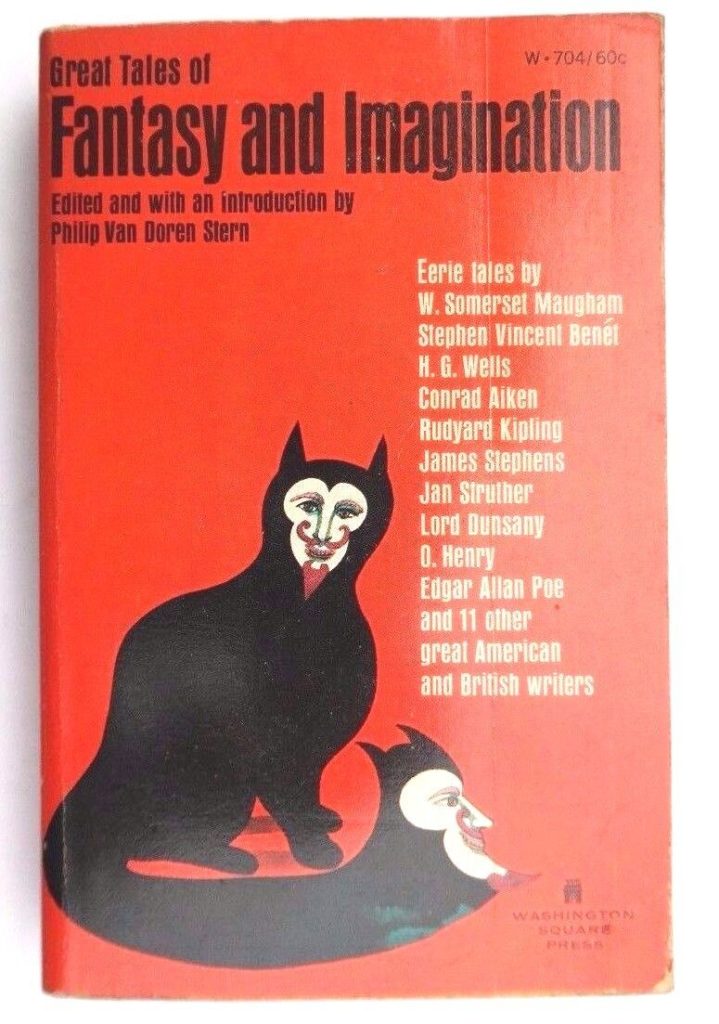My renewed diligence in reading the physical books I already own has had the unintended consequence of vastly increasing my short story consumption. Great Tales of Fantasy and Imagination is the third such anthology I’ve read this year, and might be the last.
This one was a collection that I picked up in my high school thrifting adventures, though I can’t remember if I bought it myself or if my best friend and partner in crime bought it for me on one of our trips out. Regardless, even though I kept putting off reading it, at the same time sentimental value kept me from culling it. (I think it has a companion purchased at the same store, a collection of Russian fiction, but it’s not here. Not sure if I got rid of it, or if it’s still at my parents’ home owing to a delicate physical condition that I wouldn’t trust to international shipping.)
Also, please appreciate that cover art, which has absolutely nothing to do with any of the stories inside.
This anthology was compiled by Philip Van Doren Stern, an academic and Civil War expert remembered today as the author of the short story that went on to become It’s A Wonderful Life. While Great Tales of Fantasy and Imagination is maybe around twenty years newer than the other collections I’ve been carting around in my library, in his introduction Van Doren Stern expresses the same uneasy relationship with pulp magazines as Schweikert: those stories are trashy but these stories are high art.
However, since this collection specifically focuses on the fantastic—fantasy, science fiction, horror, and magical realism before the genres had been entirely codefied—Van Doren Stern does have some interesting thoughts about how the fantastic can be used as a means of elevating a story and highlighting the worries and dreams we all have.
Out of the three short story collections I’ve read for this project (the third was another one of my Dede’s but for whatever reason I didn’t note it here?), this one had the best killer/filler ratio. Out of the twenty-one stories in the collection, only three or four were really disappointing. Lord Dunsany‘s “Our Distant Cousins,” already dated by the year of anthologizing (1943), is too old-fashioned to really have any appeal left in the year of Our Lord 2023; Walter de la Mare‘s “All Hallows” is fantastic gothic atmosphere but without much resolution; the same could be said about A. E. Coppard‘s “Adam and Eve and Pinch Me,” though it’s comic rather than gothic; and the Poe story in the collection (“William Wilson”) doesn’t have the visceral appeal of The Greatest Hits.
In contrast, there were too many really great stories to name them all in a blog post without quickly becoming tedious. Instead, I will limit myself to naming Stella Benson‘s “The Man Who Missed the ‘Bus” as the most unsettling story in the collection and point out that the entire collection is available to borrow at Archive.org.

